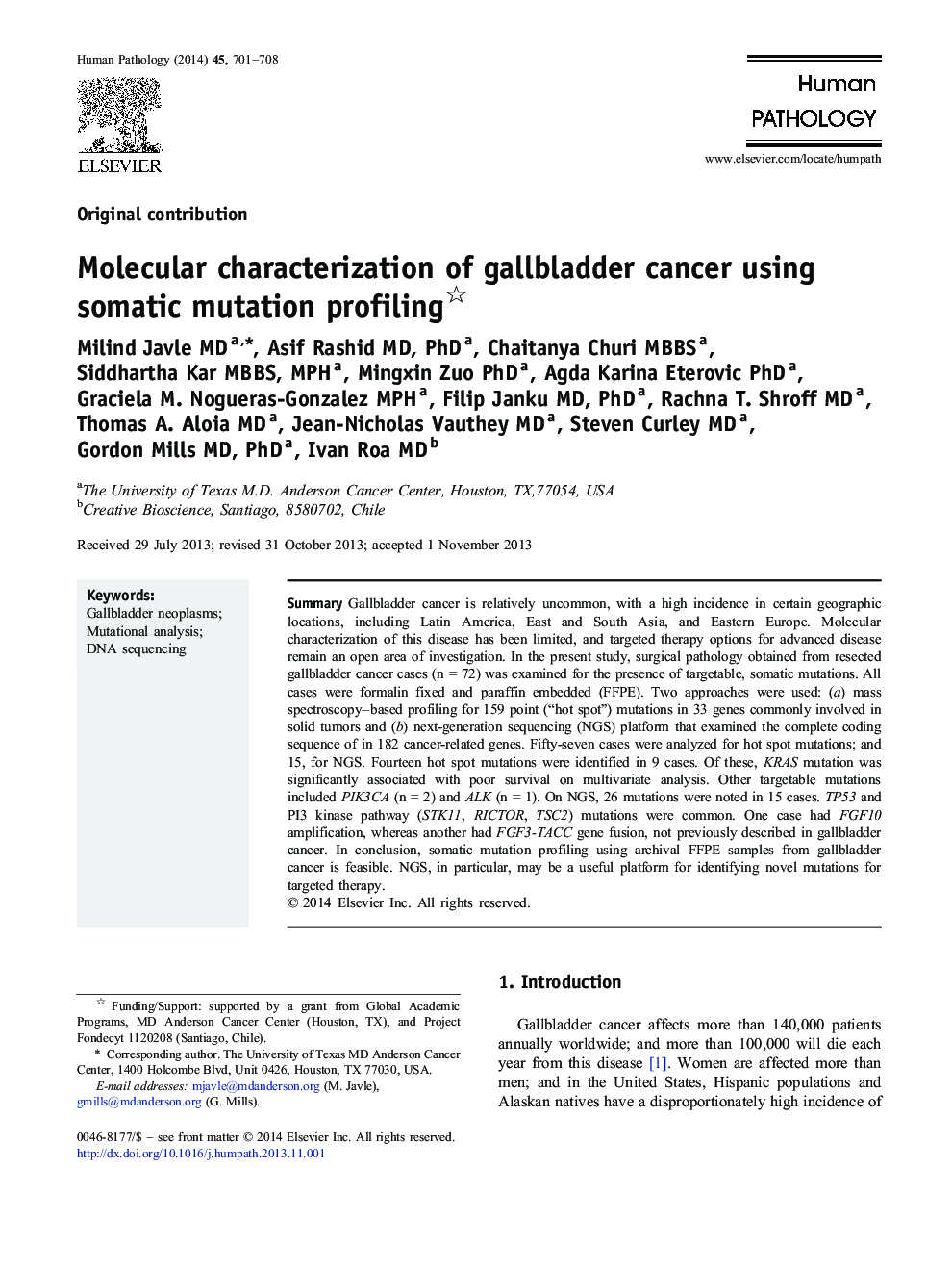| Article ID | Journal | Published Year | Pages | File Type |
|---|---|---|---|---|
| 4132978 | Human Pathology | 2014 | 8 Pages |
SummaryGallbladder cancer is relatively uncommon, with a high incidence in certain geographic locations, including Latin America, East and South Asia, and Eastern Europe. Molecular characterization of this disease has been limited, and targeted therapy options for advanced disease remain an open area of investigation. In the present study, surgical pathology obtained from resected gallbladder cancer cases (n = 72) was examined for the presence of targetable, somatic mutations. All cases were formalin fixed and paraffin embedded (FFPE). Two approaches were used: (a) mass spectroscopy–based profiling for 159 point (“hot spot”) mutations in 33 genes commonly involved in solid tumors and (b) next-generation sequencing (NGS) platform that examined the complete coding sequence of in 182 cancer-related genes. Fifty-seven cases were analyzed for hot spot mutations; and 15, for NGS. Fourteen hot spot mutations were identified in 9 cases. Of these, KRAS mutation was significantly associated with poor survival on multivariate analysis. Other targetable mutations included PIK3CA (n = 2) and ALK (n = 1). On NGS, 26 mutations were noted in 15 cases. TP53 and PI3 kinase pathway (STK11, RICTOR, TSC2) mutations were common. One case had FGF10 amplification, whereas another had FGF3-TACC gene fusion, not previously described in gallbladder cancer. In conclusion, somatic mutation profiling using archival FFPE samples from gallbladder cancer is feasible. NGS, in particular, may be a useful platform for identifying novel mutations for targeted therapy.
